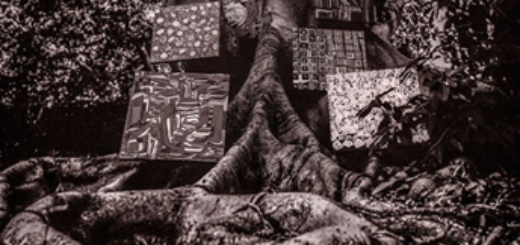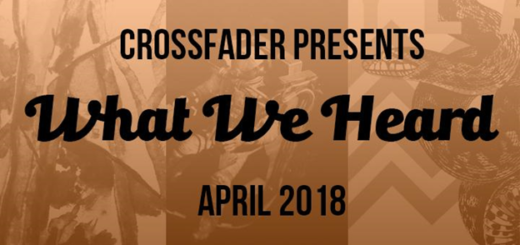Drag City: The Records You’re About to Hear Are True
I don’t know if you saw the news. I mean, you clicked on this article, so I assume you’re vaguely aware of the news. But even if you weren’t aware and you just clicked on this to check out some amazing albums, let me assure you: It was some unexpected news to be sure.
I really thought we were going to be duped. I mean, who goes ahead and okays announcing anything on April Fools Day. Even when I wiped the sleep from eyes to peruse Spotify and make sure I wasn’t, in fact, being duped, I still assumed I’d awake Monday morning to learn that the whole thing really was an elaborate prank meant to anger music fans and teach us a (probably much-needed) lesson about streaming.
But here we are, days after the news, and Drag City’s catalog remains, for the most part, on streaming services. Indie rock’s most elusive label finally came over to the dark side. In an effort to recommend some albums that haven’t been previously readily available online, we asked some of our writers to cover what they would recommend from Drag City’s 28-year history. And while you’re here, be sure to check out our reviews of recent Drag City releases, like Ty Segall’s FREEDOM’S GOBLINS and No Age’s SNARES LIKE HAIRCUTS, before giving them a listen.
— CJ Simonson, Music Editor
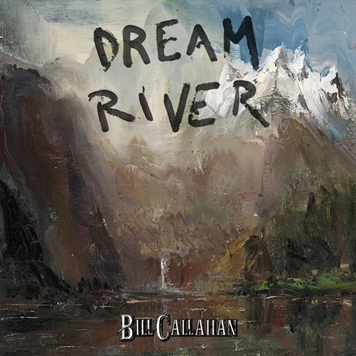
Bill Callahan – DREAM RIVER
Genre: Americana, Singer/Songwriter
Favorite Tracks: “Spring,” “Ride My Arrow,” “Winter Road”
Bill Callahan has a deep, comforting, and whimsical voice, like the narrator to a great fantasy novel. Sometimes it’s a blunt and rambling drawl and other times a soft and controlled croon, as close as he gets to actual singing in his limited range. The things I’ll say about DREAM RIVER will apply to all of the former Smog frontman’s solo albums, but DREAM RIVER is as close as we get to Callahan inviting us into his home to tell us stories of the great American landscapes and wilderness while we sip tea on the carpet, staring up at him sitting in his big armchair next to the fire. Callahan himself has described this album as a sudo nightcap, a bedtime story to wind down to: “It’s the last record you could listen to at the end of the day, before you go to bed, around midnight . . . smooth and relaxing, the perfect end to a person’s day.” Naturally some of these songs truly are cinematic stories, like “Summer Painter,” about a man whose summer job was to paint the names on boats before they go out to sea to meet a potential demise, or the album’s emotional climax “Winter Road,” about coming home to the one you love. DREAM RIVER is sparser than his other albums, featuring production that, like us the listener, is resting at his knees looking up while he waxes poetic, jazz guitar, violin, and flute frequently floating below his words. A master storyteller, you can’t go wrong with Callahan’s solo work, which frequently offers fantastically meandering poetry and lush storytelling. [CJ Simonson]
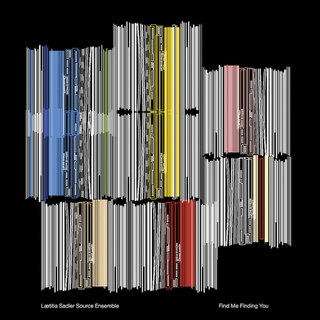
Laetitia Sadier Source Ensemble – FINDING ME, FINDING YOU
Genre: Post-Rock
Favorite Tracks: “Undying Love for Humanity,” “Psychology Active (Finding You),” “Deep Background”
It is safe to say that after almost 10 years since Stereolab, fans of the band pretty much know what they can expect out of solo offerings from Laetitia Sadier: her unmistakably enchanting vocals, thought-provoking lyrics, an occasional swirling synth line that wakes up songs that tend to stay mid-tempo (which is not a bad thing), a few upbeat, guitar-driven jams, and a well-balanced combination of krautrock and lounge pop vibes. So it should go without saying that last year’s FINDING ME, FINDING YOU contains most of these things. However, it is very obvious that something has changed in Sadier’s process, which may have been one of the reasons that prompted her to release this album under the new Laetitia Sadier Source Ensemble monkier instead of just her name. While her three previous efforts offer a balanced amount of Stereolab-esque rockers and mellow, dreamier cuts, FINDING ME, FINDING YOU is a much more cohesive and focused record that follows one path.
The album’s opening track, “Undying Love for Humanity,” is the outlier of the record: a groovy joint with a quiet, intricate guitar line, bells that sound straight out of DOTS OF LOOPS, and catchy vocal harmonies. Sadier is one of few singers that can make a danceable pop hook with lyrics of, “a capacity to govern and to be governed.” Presenting “Undying Love for Humanity” as the album opener almost seems to be a conscious decision to get the Stereolab fan service out of the way, being by far the the most upbeat track on the album and one of the few that is driven by melodic guitar. The only other instance of a faster tempo appears briefly in the bridge to another album highlight, “Psychology Active (Finding You),” and it only lasts for about 30 seconds.
The rest of the album is a relaxed, introspective journey that find’s Sadier exploring topics she’s tackled throughout her career like love, self-reflection, the threads that connect us as humans, and the temptations that threaten to separate us. Sadier has always her deep moments, but something about the consistently serene tone makes the lyrical content seem more in the foreground. “Love Captive” gets real real quick as Sadier asks, “Can I love you and stay free?,” and proceeds to get even more real when she quickly answers, “we are made to love, not fall in love.” The deep realizations of the human condition continue on “Deep Background,” which rings as kind of pedagogy that states Sadier has no interest in the greedy pursuits of the takers of the world that will say anything to, “bend for the better end of the bargain.” What makes FINDING ME, FINDING YOU so powerful is the fact that even though Sadier is dealing with heavy topics and disheartening realities, she never presents her perspective with overwhelming sadness or anger. She is merely sharing her observations. Even as she lays out what she finds undesirable of the takers who manipulate people from the background, it never comes off as overly accusatory when she responds to this kinds of behavior by quietly repeating, “such a shame.” While FINDING ME, FINDING YOU may not be the most sonically dynamic release, its commitment to maintaining a strong tonal focus sets a mood that allows listeners an opportunity to digest the truly poetic lyrical content. [Jake Mazon]

GOODBYE BREAD – Ty Segall
Genre: Garage Rock
Favorite Tracks: “Goodbye Bread,” “Comfortable Home (A True Story), “I Can’t Feel It,” “My Head Explodes,” “The Floor,” “I Am With You,” “You Make the Sun Fry”
2012. Pelham Memorial High School. It’s eight AM, Monday. I stare at the school’s front doors, debating on going back home. I didn’t get to shower. I had to walk because the parents left for work early. I’m fuckin’ tired. This pimple is still there. I think I’m still high. I have a chemistry test third period which will in no way be informed by the marijuana-accompanied reading of Calvin and Hobbes I participated in until three this morning. And those wretched stairs that greet me right when/if I open this door. Three flights. At least 20 steps each. Then I’m off to no man’s land. An inferno of clanking lockers, sycophantic freshmen, judgemental seniors, and ornery teachers who will remind me of the homework I missed and the chemistry test I have third period. Wherein does salvation lie?
I plug my headphones into my iPod Classic. Shuffle songs. Shuffle is God. Shuffle, save me, heed my prayers. Give me something to ensure survival.
Blink-182? C’mon. I mean I love them, yes, but way too upbeat for the moment and, frankly, a bit too eighth-grade-y. I’m looking for something that’ll nicely parallel my hazy, lethargic mood, not jumpstart it. Nirvana? Eh. While I am totally angsty and in the need of some thick distortion, I want it fuzzier, syrupy: more swaddling than accosting . . . Warm. Very warm. Something that will conjure up images of beer-stained denim jeans baking on a clothesline of some Southern California mobile home in the summer. I really want to smell that alcohol too. I want to smell the PBR and sweat coursing through the guitar licks. Next.
Archers of Loaf? Ok getting closer, but Eric Bachmann’s sounding a little too angry and gnarled right now. Vocals gotta be crisp and languid, ya know? Like sung by someone who’s recovering from a bender the night before. I want to get swept up in their groggy, listless cadence. Maybe they can sometimes hit those hypnagogic croons one might hear from many a 1960s psychedelic band, but also be able to crank up to throat-rasp proportions like some of the proto-punk bands of the early ‘70s. Drug-addled, but only from pot and occasional LSD use. Okay, fine, and like a pinch of cocaine.
Oh and the lyrics, keep them in the realm of gas-station-idling, alcoholic, misanthropic, trucker-hat-wearing, burnout-type activities. So, covering topics like opting to stay in bed and watch TV, loathing “the man” (and society in general), hallucinogen-induced panic, or even such advents like buying a couch. However, nothing too on-the-nose. Keep it cryptic, subtle, even a bit eldritch. Alright. I think that’s it. Shuffle, don’t fuck me over. What do you got for me? Ty Segall’s GOODBYE BREAD. Hm. Droop-faced, golden brown bloodhound on the cover . . . very promising, Shuffle. I think I’m ready to brave this adolescent minefield. [Nick Funess]

Silver Jews – AMERICAN WATER
Genre: Slacker Country Rock
Favorite Tracks: “People,” “Blue Arrangements,” “We Are Real,” “Honk If You’re Lonely,” “The Wild Kindness”
One of the fun facts about the Silver Jews’ 1998 masterwork AMERICAN WATER is that one of the album’s working titles was THE LATE, GREAT SILVER JEWS, an homage and reference to one of the greatest albums of all time, THE LATE GREAT TOWNES VAN ZANDT. While that title is derivative, it’s also the kind of snide, cheeky, and self-aware humor that David Berman and Stephen Malkmus were so good at defining during the mid-‘90s. While it’s hard to say why Malkmus’s work with Pavement would endure decades later with more cultural admiration (although the very reason we’re writing this article might be ONE of the reasons), Berman’s ragtag band of various musicians released music with slacker philosophies that could go pound-for-pound with any of the scene’s greats. AMERICAN WATER is Berman’s triumph, an album of wit and witticisms—wry observational anecdotes that ride in on a horse with a red-eyed coolness that Van Zandt himself might occasionally recognize. It’s not quite college rock’s fullest answer to Southern rock and country, but its close, with songs that shuffle and twang just enough to qualify as American bar anthems for one-horse towns. Tracks like “Buckingham Rabbit,” “Send in the Clouds,” and “Federal Dust,” where we’re reminded not to dream in Kansas City and not to die in South Dakota, are loose, band-warm-up hangouts that wordily retool dusty cowboy jukebox songs with heady ‘90s electric guitar sound. While Pavement’s one-liners always felt collected and calculated, as though there was no other way they could exist other than the way they do, Malkmus and Berman’s delivery on AMERICAN WATER is three beers deep—fun, a bit odd, and quietly cynical. The two’s interplaying verses and (semi-)harmonized duets give songs like “Honk if You’re Lonely” and “Blue Arrangements” both a rambunctious and endearingly sloppy feel that never teeters into pretentiousness. As the two deadpan on “People,” “It feels so good to be alive / Come on baby don’t stay inside.” Heed Malkmus’s dazed and joyous invite; “Everybody’s coming out tonight,” so you may as well pull up a barstool and grab a drink. [CJ Simonson]
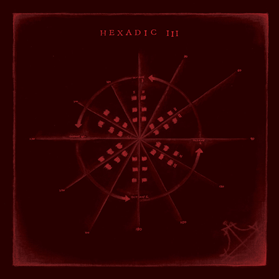
Various Artists – HEXADIC III
Genre: Experimental
Favorite Tracks: “Square of the Sun” (Moon Duo), “The Hanging Man” (Jenks MIller), “Zoa Pastorale” (Phil Legard)
Alright, folks, you ready to strap in? While Drag City is more colloquially known for their caliber of varied, indie-adjacent deep cuts such as the majority of bands above, the Laetitia Sadier inclusion hints at the deeply transgressive, boundary-pushing roster of artists on their lineup—it’s well worth remembering that the likes of Merzbow, Nurse With Wound, Kevin Drumm, and Mats Gustafsson have popped on the label, no matter how briefly. But considering the fact that HEXADIC III is at the forefront of an entirely new way of composing music, I’d say that in many ways, it and its two predecessors are some of the most ambitious work Drag City’s put its money behind. The Hexadic system of composing is a topic not best contained to a compact blurb (although it’s quite a trip if you want to research it on your own time), but essentially, it’s based on assigning playing cards to notes of an instrument and mathematically arranging progressions which are then performed. It’s to ensure that composers don’t fall into familiar habits and pushes both the performer and listener to challenge themselves and experience something new. It’s also vaguely based on the workings of occult, philosophical, and literary figures, so if you’re in need of a college dissertation, take note. If you’re already rolling your eyes and writing this off as me being up to my old tricks, that’s where the true beauty of HEXADIC III lies. A curated collection of tracks made by artists that agreed to use the Hexadic system, you’ll be surprised at just how palatable the vast majority of the work is, each artist keeping their unique voice firmly intact while contributing to an overarching cohesive atmosphere and drive: look no further than the one-two punch of Moon Duo’s expertly space-y krautrock and Jenks Miller’s shockingly accessible pop spin on the formula. Admittedly, those with a taste for the more avant-garde and improvisatory will get more mileage out of it, but as interviews with Hexadic founder Ben Chasny suggest, a good bit of the fun is in throwing caution to the wind and just going for it, and the good-natured, slightly strained exercise of it all is one of the more unique aspects of the appeal. So for the adventurous listener out there, look no further than HEXADIC III to expand your palette. [Thomas Seraydarian]

